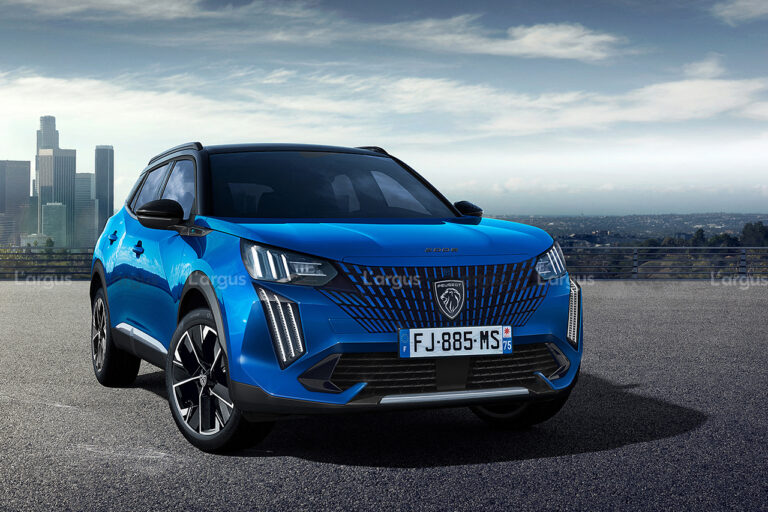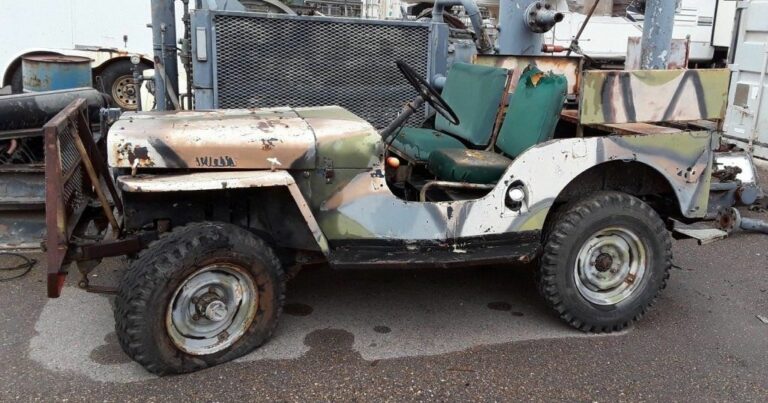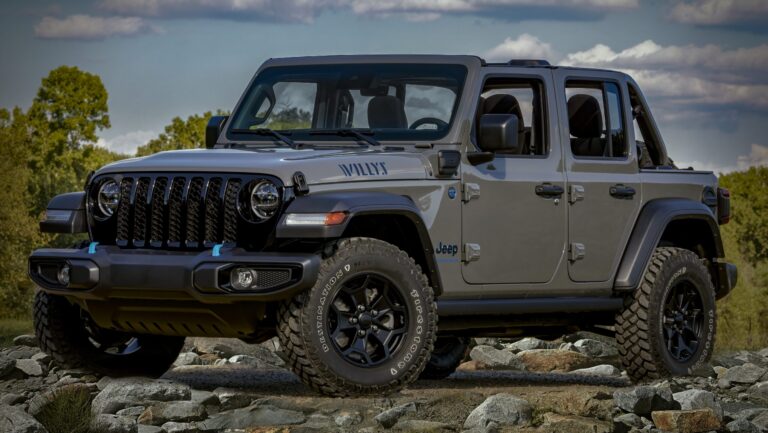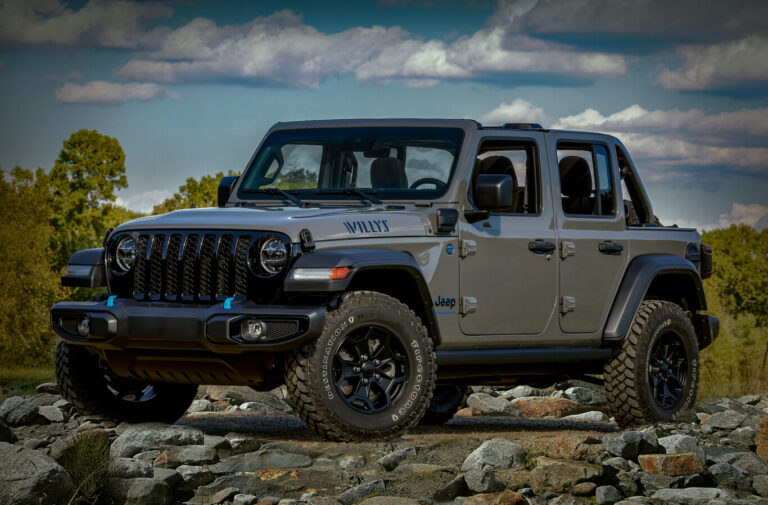Philippines Jeep For Sale: Your Comprehensive Guide to Owning an Icon
Philippines Jeep For Sale: Your Comprehensive Guide to Owning an Icon jeeps.truckstrend.com
The rumble of its engine, the vibrant art adorning its body, and its ubiquitous presence on Philippine roads – the Philippine Jeep, often affectionately called a "Jeepney" or "Owner-Type Jeep," is more than just a vehicle; it’s a cultural icon, a symbol of Filipino ingenuity, and a vital part of the nation’s transportation fabric. For many, the prospect of a "Philippines Jeep For Sale" isn’t just about acquiring transport; it’s about owning a piece of history, a workhorse, or even a canvas for personal expression.
Whether you’re an entrepreneur looking for a robust commercial vehicle, a farmer needing reliable transport for goods, an enthusiast seeking a unique project, or simply someone captivated by its charm, navigating the market for a "Philippines Jeep For Sale" requires understanding its nuances. This comprehensive guide aims to equip you with the knowledge, tips, and insights needed to make an informed and successful purchase, delving deep into every aspect of "Philippines Jeep For Sale."
Philippines Jeep For Sale: Your Comprehensive Guide to Owning an Icon
I. Understanding the Philippine Jeep Landscape
Before diving into the "Philippines Jeep For Sale" market, it’s crucial to distinguish between the various types you’ll encounter. Each serves a different purpose and comes with its own set of characteristics.
A. The Iconic Jeepney: The King of Public Transport
The most recognizable form of the Philippine Jeep, the jeepney, is primarily designed for public transportation. Born from surplus US military Jeeps after World War II, these vehicles have evolved into elongated, brightly decorated passenger carriers. When considering a "Philippines Jeep For Sale" that’s a jeepney, you’re looking at:
- Capacity: Typically seats 16-26 passengers, facing each other.
- Engines: Often utilize robust, fuel-efficient diesel engines from brands like Isuzu, Mitsubishi, and Toyota (e.g., Isuzu 4BA1, Mitsubishi 4DR5, Toyota 2C/3C).
- Design: Distinctive elongated chassis, high ground clearance, and an open rear entrance. Adorned with chrome accents, religious iconography, and intricate paintwork.
- Purpose: Exclusively for commercial public transport routes, subject to Land Transportation Office (LTO) regulations and the ongoing Public Utility Vehicle (PUV) Modernization Program.

B. The Versatile Owner-Type Jeep: Personal and Practical
The owner-type jeep is the private counterpart to the jeepney, often shorter, less ornate, and designed for personal or cargo use. These are highly sought after in the "Philippines Jeep For Sale" market for their versatility.
- Capacity: Typically seats 4-8 passengers, with a more conventional seating arrangement. Many have cargo beds.
- Engines: Similar to jeepneys, often using durable diesel engines, but gasoline engines are also common in older models.
- Design: More compact, often with a more rugged, utilitarian look. Can be highly customized by owners.
- Purpose: Ideal for farm use, off-roading, personal transport, light hauling, or even as a unique daily driver.


C. The Classic Willys/Military Jeep: For Collectors and Restorers
These are the original military Jeeps (Willys MB, Ford GPW) that served as the foundation for the Philippine Jeep. When a "Philippines Jeep For Sale" listing specifies a Willys, it’s usually a collector’s item or a restoration project.
- Engines: Original gasoline engines (e.g., Willys Go-Devil) or often retrofitted with modern diesel engines.
- Design: Authentic military aesthetics, compact, open-top.
- Purpose: Primarily for enthusiasts, collectors, or those looking to restore a piece of automotive history.
II. Why Buy a Philippine Jeep? Benefits and Uses
The appeal of a "Philippines Jeep For Sale" extends beyond mere utility. There are compelling reasons why these vehicles remain popular.
A. Affordability and Value
Compared to modern vehicles, the initial purchase price of a Philippine Jeep is significantly lower. This makes them accessible for individuals and small businesses operating on a budget. Their simple construction also means maintenance and parts are generally cheaper.
B. Durability and Simplicity
Built to withstand rough Philippine roads, these vehicles are known for their robust chassis and straightforward mechanical components. Their simplicity translates to easier diagnosis and repair, making them ideal for areas with limited access to specialized mechanics.
C. Customization Potential
One of the most attractive aspects is the ability to customize. Whether it’s adding unique paintwork, upgrading the engine, modifying the interior, or adapting it for specific cargo, a "Philippines Jeep For Sale" offers a blank canvas for personalization.
D. Cultural Connection and Nostalgia
Owning a Philippine Jeep is akin to owning a piece of national heritage. For many Filipinos, it evokes a sense of nostalgia and pride, representing resilience and resourcefulness.
E. Practicality and Versatility
From navigating crowded city streets to traversing unpaved rural roads, the Philippine Jeep’s high ground clearance and sturdy build make it incredibly practical. Owner-type jeeps, in particular, excel at hauling goods or serving as reliable family transport in challenging terrains.
III. Where to Find Philippines Jeeps For Sale
The market for "Philippines Jeep For Sale" is diverse, offering several avenues for potential buyers.
A. Online Marketplaces
- Facebook Marketplace & Groups: By far the most popular platforms. Numerous groups dedicated to "Philippines Jeep For Sale," "Owner-Type Jeep Philippines," or specific jeepney models exist. You can find direct sellers, fabricators, and even small dealers here.
- Carousell (formerly OLX.ph): A well-established online classifieds platform where individuals and dealers list vehicles.
- Dedicated Car Sales Websites: While less common for jeeps, some general automotive sales websites may have listings.
B. Dealerships and Used Car Lots
Some used car dealerships, particularly in provincial areas, specialize in selling Philippine Jeeps. These sellers often have a network of mechanics and may offer basic reconditioning services.
C. Direct from Owners / Word of Mouth
Especially for owner-type jeeps or older models, you might find sellers through local communities, mechanics, or word-of-mouth referrals. This often leads to better deals but requires more legwork.
D. Fabricators and Builders
For custom-built or newly assembled jeeps (often using surplus engines and parts), contact local fabricators. They can build a jeep to your specifications, from the ground up, providing a "Philippines Jeep For Sale" that’s brand new in its construction.
IV. Key Considerations Before Buying a Philippines Jeep
Purchasing a "Philippines Jeep For Sale" requires careful consideration to ensure you get a reliable vehicle that meets your needs and avoids potential pitfalls.
A. Budget and Financing
Beyond the purchase price, factor in registration fees, insurance, potential repairs, and ongoing maintenance. While cheaper to buy, older jeeps may require more immediate attention.
B. Intended Use
Clearly define your primary purpose. A commercial jeepney for a route operator will have different requirements and legal implications than an owner-type jeep for personal farm use.
C. Condition Assessment (Crucial!)
This is paramount. Many "Philippines Jeep For Sale" units are decades old and have seen heavy use.
- Engine: Check for leaks, excessive smoke (blue/black), unusual noises, and starting difficulties.
- Chassis and Frame: Inspect for rust, cracks, and signs of previous accidents or major repairs. The frame is the backbone of the vehicle.
- Body and Paint: Look for rust, especially in common areas like the floorboards, wheel wells, and undercarriage. Assess the quality of the paint job – a fresh coat might hide problems.
- Suspension and Steering: Check for excessive play, worn bushings, and signs of damage.
- Brakes and Tires: Ensure brakes are responsive. Check tire tread and condition.
- Electrical System: Test all lights, gauges, and accessories.
- Bring a Mechanic: If possible, always bring a trusted mechanic for a thorough pre-purchase inspection.
D. Legal Documentation and LTO Verification
This cannot be stressed enough. Always verify the authenticity and completeness of documents for any "Philippines Jeep For Sale" listing.
- Official Receipt (OR) and Certificate of Registration (CR): These are the primary documents. Ensure the details match the vehicle (Chassis number, Engine number).
- Deed of Sale: Must be notarized upon purchase.
- Encumbrances/Liens: Check if the vehicle has any outstanding loans or legal issues. The LTO can provide a clearance certificate.
- LTO Verification: Go to your nearest LTO office and have them verify the OR/CR and vehicle details. This protects you from buying a "hot car" (stolen) or one with fraudulent papers.
E. Parts Availability and Mechanics
One advantage of popular Philippine Jeep models is the widespread availability of spare parts, especially for common engines like Isuzu 4BA1/C240 and Mitsubishi 4DR5. Local auto supply stores and surplus shops often stock these. Mechanics familiar with these engines and the overall jeep structure are also abundant.
F. PUV Modernization Program (for Commercial Jeepneys)
If you’re considering a "Philippines Jeep For Sale" that’s a commercial jeepney, be acutely aware of the government’s PUV Modernization Program. Older, traditional jeepneys are being phased out in favor of modern, Euro-4 compliant units. This significantly impacts the value and operational legality of older jeepneys on specific routes.
V. The Buying Process: A Step-by-Step Guide
Navigating the "Philippines Jeep For Sale" process can be straightforward with a methodical approach.
- Research and Identify Your Needs: Determine the type of jeep, budget, and features you require.
- Browse Listings: Use online platforms, visit dealerships, or ask around your network.
- Initial Contact and Inquiry: Ask specific questions about the jeep’s history, maintenance, mileage (if applicable), and reasons for selling. Request photos of specific areas (engine, undercarriage, documents).
- Physical Inspection and Test Drive: This is non-negotiable. Inspect the vehicle thoroughly (refer to Section IV.C). Take it for a test drive on various road conditions. Listen for unusual noises, check steering, brakes, and transmission.
- Due Diligence on Documentation: Before committing, verify the OR/CR with the LTO. Ensure the seller is the registered owner or has proper authorization to sell.
- Negotiation: Be prepared to negotiate the price. Point out any defects or necessary repairs to justify a lower offer.
- Payment and Transfer of Ownership:
- Secure Payment: Use secure payment methods like manager’s checks or bank transfers. Avoid carrying large amounts of cash.
- Deed of Sale: Ensure a notarized Deed of Sale is executed, clearly stating the vehicle details, purchase price, and buyer/seller information.
- Transfer Registration: Immediately after purchase, initiate the transfer of registration at the LTO. This formalizes your ownership.
- Post-Purchase Checklist:
- Insurance: Secure vehicle insurance.
- Initial Maintenance: Even if it seems okay, a fresh oil change, fluid checks, and general tune-up are recommended.
VI. Tips for a Successful Purchase
- Bring a Knowledgeable Companion: Always bring a trusted mechanic or someone experienced with Philippine Jeeps to inspect the vehicle.
- Don’t Rush: Take your time. There are many "Philippines Jeep For Sale" listings. Don’t feel pressured to buy the first one you see.
- Be Wary of "Too Good to Be True" Deals: If the price is significantly lower than similar models, there might be hidden problems or legal issues.
- Prioritize Documentation: A jeep with perfect mechanical condition but questionable papers is a huge liability.
- Factor in Potential Repairs: Even a well-maintained older jeep will likely need some attention. Budget for immediate repairs and future maintenance.
VII. Potential Challenges and Solutions
While owning a Philippine Jeep can be rewarding, be aware of common challenges.
A. Rust and Wear
- Challenge: Common due to age and tropical climate. Can compromise structural integrity.
- Solution: Thorough inspection. Budget for bodywork, rust treatment, and painting. Consider rust-proofing post-purchase.
B. Engine Issues
- Challenge: Older engines may have reduced power, consume oil, or have major internal wear.
- Solution: Professional inspection is key. Be prepared for potential engine overhaul or replacement, especially if the price is low. Many choose to swap engines for more modern, efficient units.
C. Documentation Fraud
- Challenge: Stolen vehicles, fake documents, or vehicles with multiple owners/liens.
- Solution: Always verify OR/CR with LTO. Insist on meeting the registered owner. Be cautious of sellers who are vague about the vehicle’s history.
D. Parts Scarcity (for very old or unique models)
- Challenge: While common parts are abundant, specific components for very old or less common models can be hard to find.
- Solution: Network with jeep enthusiasts and specialized mechanics. Online forums can also be a good resource for sourcing parts.
E. Modernization Compliance (for commercial jeepneys)
- Challenge: Operating older jeepneys on routes affected by the PUV Modernization Program can lead to fines or revocation of franchises.
- Solution: For commercial purposes, consider purchasing a modern compliant unit or thoroughly understanding the phase-out schedule and alternative routes for older models.
Table: Estimated Price Guide for Philippines Jeep For Sale (2024)
Prices for "Philippines Jeep For Sale" can vary wildly based on condition, location, engine, and customization. The table below provides a general estimate.
| Type of Jeep | Engine Type (Common) | Condition & Features | Estimated Price Range (PHP) | Notes |
|---|---|---|---|---|
| Owner-Type Jeep | Isuzu C240, 4BA1, Mitsubishi 4DR5 | Basic, Running Condition: Needs minor repairs. | ₱ 80,000 – ₱ 150,000 | Good for personal/farm use. Expect some rust and wear. |
| Toyota 2C/3C, Isuzu 4JA1 | Well-Maintained/Customized: Good paint, interior. | ₱ 150,000 – ₱ 300,000 | Ready for daily use, potentially with upgrades (e.g., power steering). | |
| Modern Diesel Engine | Newly Fabricated/High-Spec: Brand new build. | ₱ 300,000 – ₱ 500,000+ | Custom-built to order, with new parts and engines. | |
| Commercial Jeepney | Isuzu 4BE1, Mitsubishi 4DR5/4M40 | Older Model, Running: Needs significant TLC. | ₱ 100,000 – ₱ 250,000 | Best for non-franchised routes or for parts. Subject to PUV Modernization phase-out. |
| Isuzu 4HF1, Hino J05C | Refurbished/Upgraded: Better condition, may have AC. | ₱ 250,000 – ₱ 400,000 | Still an older model, but more reliable. Modernization program still applies. | |
| Euro-4 Compliant (Modern) | Brand New/Modern Jeepney: AC, automatic door. | ₱ 1,800,000 – ₱ 2,500,000+ | Compliant with PUV Modernization. Sold by authorized manufacturers. Not a "traditional" jeepney. | |
| Willys/Military Jeep | Original Go-Devil, Retrofit Diesel | Restorable Project: Significant rust, non-running. | ₱ 150,000 – ₱ 300,000 | For enthusiasts willing to invest in full restoration. |
| Original/Modern Diesel | Restored/Collector’s Item: Excellent condition. | ₱ 300,000 – ₱ 700,000+ | Ready to drive or display. Price depends on authenticity and quality of restoration. |
Note: Prices are highly variable and serve only as a general guide. Always inspect the vehicle thoroughly and negotiate.
Frequently Asked Questions (FAQ) about Philippines Jeep For Sale
Q1: What’s the main difference between a jeepney and an owner-type jeep?
A1: A jeepney is primarily designed for public transport, seating many passengers facing each other, often elongated. An owner-type jeep is for private use, generally shorter, and can be used for personal transport or light cargo.
Q2: Are spare parts for Philippine Jeeps readily available?
A2: Yes, especially for common engine models like Isuzu C240, 4BA1, Mitsubishi 4DR5, and Toyota 2C/3C. Parts are widely available in auto supply stores and surplus shops across the Philippines.
Q3: Can I use an owner-type jeep for commercial purposes?
A3: An owner-type jeep is registered for private use. To use it commercially (e.g., for hire or as a delivery vehicle), you would need to re-register it for commercial use and obtain the necessary permits and franchises, which can be complex.
Q4: Is it legal to register a very old jeep?
A4: Yes, as long as the vehicle has complete and authentic LTO documents (OR/CR) and passes the necessary inspections (e.g., smoke emission test), it can be registered annually regardless of age.
Q5: How much does it cost to maintain a Philippine Jeep annually?
A5: Maintenance costs vary greatly depending on the jeep’s age, condition, and usage. Generally, they are less expensive to maintain than modern vehicles due to simpler mechanics and cheaper parts. Expect to budget for routine oil changes, filter replacements, and occasional repairs. A well-maintained unit might cost ₱10,000-₱20,000 annually for basic maintenance, excluding major repairs.
Q6: What is the PUV Modernization Program, and how does it affect buying a jeepney?
A6: The Public Utility Vehicle (PUV) Modernization Program is a government initiative to replace old, traditional jeepneys with modern, Euro-4 compliant, safer, and more environmentally friendly vehicles. If you buy an old jeepney for commercial public transport, it may be phased out from specific routes, significantly impacting its operational viability.
Q7: Can foreigners buy jeeps in the Philippines?
A7: Yes, foreigners can legally buy and register vehicles, including Philippine Jeeps, in their name in the Philippines, provided they have a valid visa and comply with all LTO requirements.
Conclusion
The "Philippines Jeep For Sale" market offers a unique opportunity to acquire a piece of Filipino heritage, a versatile workhorse, or a canvas for customization. From the iconic jeepney to the rugged owner-type, each vehicle tells a story of resilience and adaptability.
By thoroughly researching, meticulously inspecting, and diligently verifying all documentation, you can navigate this market successfully. Remember to define your needs, budget wisely, and prioritize the vehicle’s condition and legal standing. Owning a Philippine Jeep is more than just a purchase; it’s an embrace of a unique automotive culture, a testament to Filipino ingenuity, and a practical companion for the roads less traveled. With the right approach, your journey to finding the perfect "Philippines Jeep For Sale" will be a rewarding adventure.





